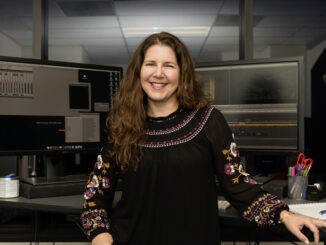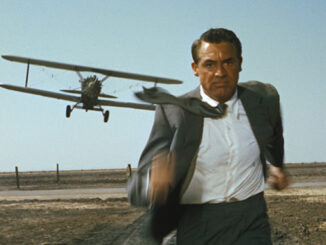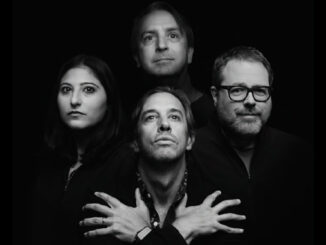
by Karen Kalish
Motion Picture Editors Guild retirees are goldmines of information; they are walking encyclopedias of the industry with priceless experience and wisdom to offer. While the technology may have changed, the necessity of navigating through the challenges of the craft and the politics still remains.
To coincide with the photo coverage in this issue (see pages 10-11) of the Guild’s East and West Coast retiree luncheons in May, Editors Guild Magazine reached out to several retirees who were open to sharing memories of their careers, and their post- post-production activities.
Stan Tischler
West Coast-Based TV Comedy Editor
On Retiring: I continued working for two years after the conclusion of M*A*S*H. In 1984, I retired. Since then, I’ve enjoyed traveling, playing golf, and…complete relaxation as far away from the business as I can get. Not having to live on a schedule is pure joy.
Favorite Credits: I am proud of everything I’ve done since I first worked with Ida Lupino at her production company, The Filmmakers. Among the films with Ida were The Bigamist, Private Hell 36, and Mad at the World. TV came later and included Bachelor Father, Wagon Train, Sea Hunt and Peyton Place. In addition to editing, I became associate producer for Judd for the Defense, Men at Law and others.
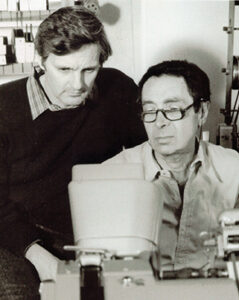
Career Highlight: Receiving four ACE Eddie Awards (M*A*S*H), four Emmy Award nominations and one Emmy (M*A*S*H), which I treasure.
Starting Out: I did not choose to become a comedy editor. I was a freelance editor and took the first job offered. I can’t remember the first TV comedy I edited, but word of mouth got me many jobs, and I became known as a TV comedy editor.
Biggest Challenge: For me, there was no “most difficult situation” that I faced. Each situation at the time seemed horrendous, but was always handled. You just need to stay calm; don’t panic. Remind yourself that you are creative. Have confidence that you can figure it out.
Words of Wisdom: When reading a script you’re about to edit, you must let your own emotions reign. In dealing with creative people, there must be a mutual acknowledgment of each other’s expertise in order to have a good finished product. If you can’t find a blending of the minds, you’re cutting the wrong show; you will have given up your own creativity and become nothing but a tool. And the final product itself will suffer.
Ara Chekmayan
East Coast-Based Documentary Editor
On Retiring: I retired seven years ago. I got tired of trying to raise money for independent projects. Since retiring, I’ve been going to flea markets, finding and restoring antiques, such as two juke boxes, a pinball machine, a slot machine, a player piano and a 1932 Buick Victoria Coupe.
I also write screenplays, which, unlike documentaries, have happy endings (Mitzi Meets Ditsy, Flugelheim and Friends). Sadly, when I submit my screenplays, I need to hide the fact that I’m not 25; otherwise, no one would read my stories. In this business, too much experience, wisdom and age can be a deficit. lost Maltese Falcon used in John Huston’s 1941 film. I paid $8––and sold it for $80,000!
Favorite Credits: Receiving three Emmy Awards (Cops, 1974; The War Machine, 1981; JFK, 1983) and being nominated for an Academy Award (Children of Darkness, 1984).
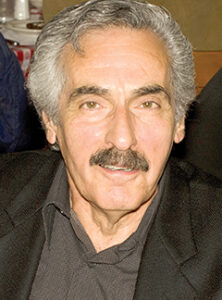
Career Highlight: This is actually a highlight from my second career––collecting and restoring antiques––however, it is film-related. During one of my flea market excursions, I found the lost Maltese Falcon used in John Huston’s 1941 film. I paid $8––and sold it for $80,000!
Starting Out: I started in TV commercials. This medium taught me a great deal about filmmaking, acting, music and sound effects. When the TV commercial company I worked for went out of business, I found a job at WNET/Channel 13, where I began working on documentaries and eventually became a supervising film editor.
Biggest Challenge: My most difficult challenge was spending enough time with my wife and my two young sons. The long hours and lost weekends can take a toll on the family. I handled it by working freelance; when I finished a project, I’d spend as much time as I could with my family. By the time they were tired of having me around, I would go back to work!
Words of Wisdom: Documentaries are a very powerful medium. You are a major participant in shap- ing the story that evolves. Documentaries can educate, inspire and infuriate. They can make the people who have trusted you with their image and voices into heroes or villains. Always be fair. Don’t compromise your values. I could have had more opportunities if I was willing to compromise my values, but I never would have been as comfortable with myself as I am. I’m content; no regrets.
Virginia Ellsworth
West Coast- Based Music Editor
On Retiring: I retired ten years ago. My body actually told me it was time. I was falling asleep on the keyboard while doing overnight timing notes. I just couldn’t do those 16-hour days/nights any more.
Since retiring, I represented composers for a couple of years and tried my hand at pitching scripts. Then I worked for FEMA helping the Katrina victims. At the time of this interview, I’m gearing up to go to Alabama to help the tornado victims. My true love is working with children in Uganda. I created a foundation to help raise money for them; I call myself a “Philanthropist on a Shoestring.” For more information, you can read about my mis- sion of passion at www.onegoatperchild.com.
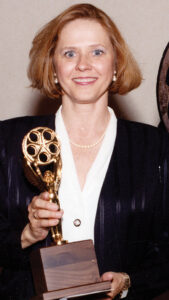
Favorite Credits: My un-credited temp track for Field of Dreams. That was before the time temp editors received acknowledgments. Other credits include House of Usher and Wild Thing, two of the many films I had fun working on with George S. Clinton.
Career Highlight: Realizing I had some serious chops when I heard the final music of Field of Dreams; it was amazingly like the temp that I worked on for months.
Getting Started: When I first came to Hollywood from New York in the ‘70s, despite the fact that I had been the first female picture editor hired at WNET/NY (we were IBEW), I was unable to get into the Editors Guild. I heard about a new cartoon company opening up (Ruby/Spears). They were obligated to interview all available union music editors first. No one wanted the job; no one really knew what cartoon editing was all about at that time. Voila! My foot was in the door, and I loved it! After all, I had a musical background; I played the accordion and received First Prize in the New York, New Jersey, and Connecticut Accordion Competition.
Biggest Challenge: Back in the 35mm days, I worked on a TV series with a composer who always told everyone we didn’t need act-outs. Of course, he was never on the dubbing stage each week when the producers requested I cut something in. So, one week after the spotting session, I decided to include the act-outs in the timing notes. Don’t you know, he called my office and screamed at my partner, “How dare she tell me what to write!” I learned that some composers can be unbelievably unreasonable.
Words of Wisdom: Try as you might, you just can’t change unreasonable people.
Ed Friedman
East Coast-Based TV Commercial Editor
On Retiring: I retired from editing three years ago, and I’ve been managing my editorial company, DJM. I oversee all the editorial work, graphics and sound mixing. Since retiring, I’ve been enjoying boating and fishing, skeet and sporting clay shoot- ing, scuba diving and car collecting. Yes, I have several––like Jay Leno.
Favorite Credits: Editing the Pepsi commercials and maintaining the account for ten straight years.
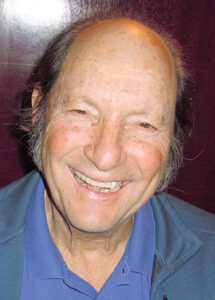
Career Highlight: Starting my own company years ago when independent editorial services were not in fashion.
Starting Out: After the Navy, I tried to get a job as an electrician’s apprentice, but I couldn’t get one. However, I was recommended to a film production company, Robert Lawrence Productions, as a messenger in the editorial department, where I worked myself up the ladder.
Biggest Challenge: We were working on both the Coca-Cola and Pepsi commercials at the same time––a highly unusual situation in the advertising world. When the Coca-Cola people showed up for screenings, we had to cover the Pepsi label on our company’s soda machine with a Coca-Cola masking tape label!
Words of Wisdom: Showing by example is the most efficient, time-saving way to resolve creative differences. When I’m asked to make changes I don’t agree with, I cut two versions: one with the requested cuts and another with my cuts.
Richard A. Harris
West Coast-Based Features Editor
On Retiring: In 1996, I moved to Santa Ynez to “officially” retire, but my first planned retirement was interrupted by Titanic in 1997.
Having retired in the heart of Wine Country, I was inspired to plant a vineyard. I took viticulture classes, learned by doing everything by hand and now have my own label: Calzada Ridge Viognier. Growing grapes is full time.
Favorite Credits: For about 20 years, I was partners with director Michael Ritchie. We were comedy people; a couple of favorites from the ‘70s are Semi- Tough and Smile. The first film I worked on that made money was the original Bad News Bears. Except for Fletch, the ‘80s were sh*t. The ‘90s were wow; L.A. Story, The Bodyguard, Terminator 2, True Lies and Titanic.
Career Highlight: Winning an Academy Award for Titanic. The glow lasted for a while…it was also nice to share that feel- ing with all the other crafts people who brought home Oscars that night.
Starting Out: In Cinema School at USC, I was drawn to editing. I pursued it with a vengeance, working on anything I could get my hands on. It was always the goal to work in features. By the time I was hired for Downhill Racer––which I feel defined my style––I was ready.
Biggest Challenge: On Terminator 2––my first film with James Cameron––while all three editors were making changes at the last minute, word came down that the specific music cue for the title sequence I had volunteered to do, did not fall properly on the shot of the endoskeleton. He came into my room fuming: “It is the editor’s job to make sure the picture and music are in sync.” A matter of a few frames became my worst nightmare. I checked my optical counts over and over, re-making the sequence, but it kept coming up wrong. In desperation I called ILM’s resident wizard, Dennis Muren, and with Dennis’ help, I was finally able to turn my nightmare into success. And I never volunteered for a title sequence again!
Words of Wisdom: Difficult people and situations are the nature of the beast in the film world. If you can’t deal with that, you are in the wrong field.


